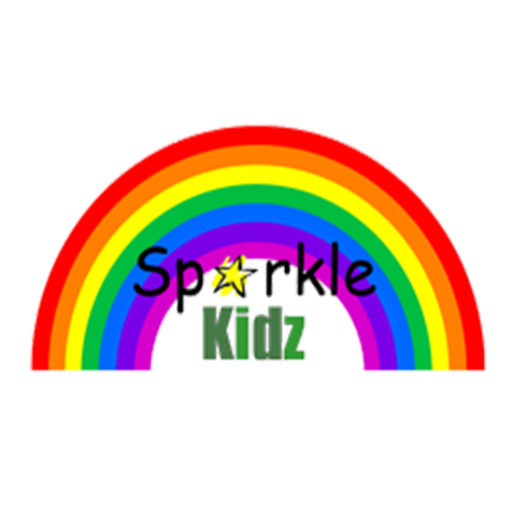In today’s fast-paced educational environment, student care extends far beyond academic support. It encompasses the physical, emotional, social, and intellectual wellbeing of learners at every stage of their educational journey. As educational institutions face growing challenges and students navigate increasingly complex pressures, effective student care frameworks have become essential for fostering healthy, successful learning environments. This comprehensive guide explores the multifaceted aspects of student care, offering practical insights for educators, administrators, and parents committed to supporting student growth and development.

The Evolution of Student Care in Modern Education
The concept of student care has transformed significantly over the past decade. No longer limited to basic supervision, today’s approach to student care integrates holistic support systems designed to address diverse student needs. Research consistently shows that comprehensive student care programs correlate strongly with improved academic outcomes, reduced behavioral issues, and enhanced overall wellbeing.
According to the National Education Association, schools with robust student care frameworks report up to 27% higher graduation rates and significantly fewer disciplinary incidents. This data underscores the critical importance of investing in quality student care practices across all educational settings.
Key Components of Effective Student Care
Modern student care encompasses several interconnected elements:
- Physical wellbeing – Including nutrition, exercise, and health services
- Emotional support – Addressing mental health needs and stress management
- Social development – Fostering healthy relationships and community belonging
- Academic guidance – Providing tailored learning support and progress monitoring
- Future preparedness – Developing life skills and career readiness

Building Comprehensive Student Care Programs in Educational Institutions
Implementing effective student care requires strategic planning and resource allocation. Schools and universities that excel in student care typically adopt a systematic approach to program development and implementation.
Needs Assessment and Program Design
Before establishing a student care program, institutions should conduct thorough needs assessments to identify specific student challenges and requirements. This process might include:
- Surveys of students, parents, and staff
- Analysis of academic performance data
- Review of attendance and behavioral records
- Consultation with community health providers
- Examination of existing support service utilization
Based on assessment findings, institutions can design targeted student care initiatives that address identified needs while maximizing available resources.
Creating Supportive Physical Environments
The physical setting plays a crucial role in student care. Learning spaces should be designed to promote both comfort and engagement. Consider these elements when evaluating and enhancing physical environments:
- Ergonomic furniture that accommodates different body types and abilities
- Adequate lighting, temperature control, and acoustics
- Designated quiet spaces for reflection or emotional regulation
- Accessible health service areas and counseling offices
- Safe outdoor spaces that encourage physical activity

Mental Health Support: A Cornerstone of Effective Student Care
The dramatic rise in student mental health challenges has placed psychological wellbeing at the center of comprehensive student care programs. According to the American Psychological Association, approximately one in five students experiences significant mental health issues during their educational career.
Implementing Mental Health Initiatives
Effective mental health support within student care frameworks typically includes:
- Trained counselors and mental health professionals on staff
- Regular mental health screenings and assessments
- Peer support programs and mentoring initiatives
- Stress management and resilience-building workshops
- Clear referral pathways to specialized services when needed
Mental health initiatives should be integrated throughout the educational experience rather than existing as isolated services. This integration helps normalize mental health discussions and reduces stigma around seeking support.

Technology and Student Care: Digital Solutions for Modern Challenges
Educational technology offers powerful tools for enhancing student care efforts. Digital platforms can facilitate early intervention, streamline communication, and extend support beyond traditional settings.
Leveraging Technology for Enhanced Student Care
Innovative applications of technology in student care include:
- Early warning systems that flag concerning patterns in attendance or performance
- Student information systems that track comprehensive wellbeing metrics
- Telehealth platforms providing remote access to counseling services
- Mobile applications supporting daily wellbeing practices
- Learning analytics that identify personalized academic support needs
While technology offers significant advantages, effective student care balances digital solutions with meaningful human connections. The most successful programs use technology to enhance rather than replace personal interactions.
Building Inclusive Student Care Frameworks
Quality student care recognizes and responds to the diverse backgrounds, identities, and experiences of all learners. Inclusive care frameworks ensure that support systems are accessible and relevant to students across demographic categories.
Culturally Responsive Student Care Practices
To create truly inclusive student care programs, institutions should:
- Recruit diverse staff who reflect the student population
- Provide cultural competency training for all care providers
- Offer multilingual services when possible
- Recognize and accommodate cultural differences in help-seeking behaviors
- Celebrate diversity through programming and community building
Parent and Community Partnerships in Student Care
Effective student care extends beyond institutional boundaries through strategic partnerships with families and community organizations. These collaborations create comprehensive support networks that reinforce care efforts across multiple settings.
Strengthening Family Engagement
Research consistently demonstrates that family involvement significantly enhances the effectiveness of student care initiatives. Educational institutions can strengthen this crucial partnership through:
- Regular, bidirectional communication about student wellbeing
- Parent education workshops on supporting student development
- Family inclusion in care planning for struggling students
- Accessible parent-teacher conference scheduling and formats
- Recognition of diverse family structures and circumstances
Community Resource Integration
Community partnerships expand the range of available supports while avoiding service duplication. Valuable community connections might include:
- Local mental health providers and social service agencies
- Youth development organizations and recreational programs
- Cultural centers and religious institutions
- Public health departments and healthcare providers
- Business partners offering internship and mentoring opportunities
Measuring the Impact of Student Care Initiatives
Assessment and continuous improvement are essential components of sustainable student care programs. Well-designed evaluation frameworks help demonstrate program value while identifying opportunities for enhancement.
Key Performance Indicators for Student Care
Meaningful metrics for evaluating student care effectiveness include:
- Academic performance and graduation rates
- Attendance and engagement measures
- Disciplinary incident frequency and severity
- Student wellbeing survey results
- Program participation rates and satisfaction levels
- Staff retention and satisfaction
- Parent and community feedback
Data collection should be ongoing rather than episodic, allowing for responsive program adjustments based on emerging needs and outcome patterns.
Training Staff for Effective Student Care Delivery
Even the most carefully designed student care program will falter without properly prepared staff. Comprehensive training ensures that all personnel understand their roles in supporting student wellbeing.
Essential Training Components
Staff development for student care should include:
- Recognition of warning signs for common student challenges
- Trauma-informed care practices
- Crisis intervention techniques
- Cultural competency and inclusion strategies
- Appropriate boundaries and self-care practices
- Documentation and confidentiality requirements
- Collaborative problem-solving approaches
Conclusion: The Future of Student Care
As educational environments continue to evolve, student care approaches must adapt to address emerging challenges while building on established best practices. Forward-thinking institutions recognize that investing in comprehensive student care yields dividends not only in academic outcomes but in producing well-adjusted, resilient graduates prepared for future success.
The most effective student care frameworks balance universal supports with targeted interventions, create seamless coordination between services, and maintain unwavering focus on the whole student. By prioritizing student care as a core institutional commitment rather than an ancillary service, educational organizations create environments where all students can thrive.
We invite you to share your experiences with student care initiatives in your educational setting. What approaches have proven most effective? What challenges have you encountered? Join the conversation by leaving a comment below or connecting with us on social media.
You may visit our website for more info www.sparklekidz.com.sg or Mobile 93253855
